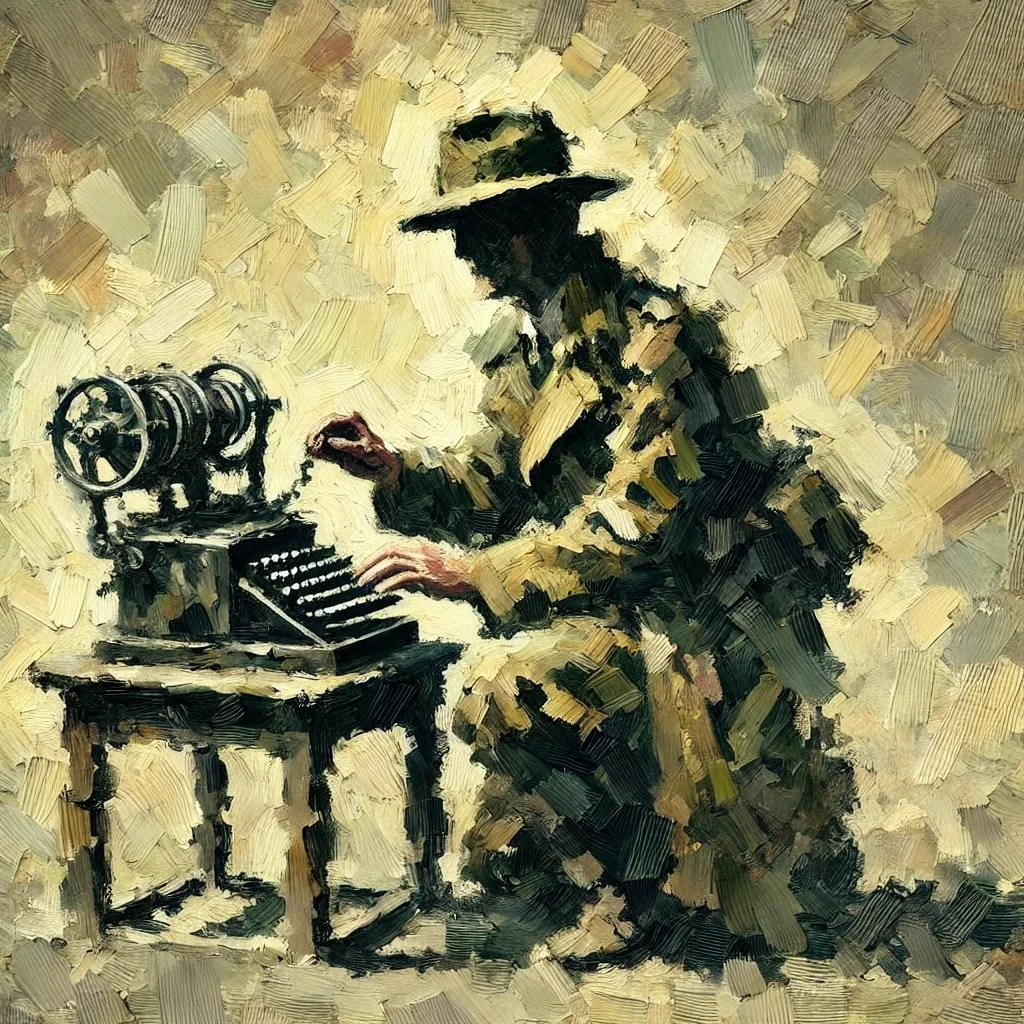
Welcome to our informational blog.
Topics covered include literary theory and practice, academic writing techniques, philosophy of education, and explanations of our methods for enhancing creative intelligence.
Epiphanic Storytelling: Structuring Revelations for Narrative Impact
Creating an epiphanic story structure can be a complex endeavor, as it requires a deep understanding of character psychology, narrative pacing, and thematic development. A book writing coach provides tailored guidance that helps authors develop moments of insight in a way that feels authentic and powerful within the broader context of the story.
Improving Investigative Journalism: Consultant Contributions to Structure and Style
Investigative reporting requires careful research, source cultivation, and adherence to ethical principles. Techniques such as using public records, conducting in-depth interviews, and employing data analysis are key to uncovering and verifying information. In addition, a freelance writing consultant can be a valuable resource for a journalist working in this field. Their expertise can help refine the journalist's writing, improve clarity, and ensure that the content is both compelling and accurate.
Understanding Point of View: A Guide for Fiction Writers
Each POV—whether first person, close third person, or omniscient narration—shapes the reader's understanding of characters and events, controlling the flow of information and determining the level of emotional connection. A freelance writing coach can guide fiction writers through exercises that reveal the unique effects of each POV, helping them decide which perspective or combination of perspectives best suits their project.
The Surreal Worlds of Kobo Abe
An author inspired by Kobo Abe’s work can experiment with elements of his style by focusing on themes of existentialism, alienation, and the surreal, while using a creative writing coach to refine their approach. The guidance of an online coach can help structure these experiments and provide insight into how to integrate Abe’s literary techniques into the author's own voice.
Reimagining Narrative Structure: How Writing Coaching Can Help You Think Like Cortázar
What makes Cortázar's writing unique is his ability to innovate within the boundaries of genre, structure, and language. He rejected the idea of literature as a passive medium and instead viewed it as a space for interaction and discovery. For those interested in playing with unconventional narrative techniques like Cortázar, a one on one writing coach can offer both technical expertise and the encouragement needed to push creative boundaries.
Learning from Rachel Cusk: Shifting Narratives Through Dialogue
Cusk’s method of using dialogue as a primary narrative tool can be complex to execute, as it requires careful control over character voices, pacing, and the thematic integration of conversation. A novel writing coach can guide authors through this process by offering practical feedback, suggesting techniques, and helping to refine the balance between dialogue and narrative structure.
Bruce Chatwin's Legacy: Redefining the Travel Log
Bruce Chatwin's contribution to travel writing and literature as a whole was not just in the stories he told, but in the way he told them. A creative writing consultant well-versed in Chatwin’s style can offer valuable guidance to a travel writer seeking to explore unconventional narrative structures.
Magical Realism: Challenging the Real and the Imagined
Magical realism remains an influential genre, with contemporary writers from around the world continuing to explore its possibilities. The genre's enduring appeal lies in its ability to capture the richness and complexity of reality, revealing the magical within the mundane. A professional writing coach can guide authors through the process of experimenting with the techniques that define magical realism, helping them to effectively integrate these elements into their work.
The Intersection of Truth and Fiction: Coaching Strategies for Writing Autofiction
Unlike traditional autobiography, which seeks factual accuracy, autofiction allows for a more flexible and fragmented approach, creating a narrative space that is both deeply personal and creatively expansive. As this genre has gained popularity, particularly in contemporary literature, it has also introduced specific challenges for writers—challenges that a novel writing coach can help navigate.
What Beckett Read
By examining Beckett's reading habits, we gain valuable insights into the importance of diverse reading for good writing. An author coach can help writers prioritize and diversify their reading so that they can explore new ways of expressing themselves.
Literary Ciphers: How Authors Use Codes to Enhance Narrative Tension
Codes and ciphers offer both an intellectual challenge and narrative intrigue. As a literary device, their ability to conceal and reveal information makes them invaluable in constructing suspenseful plots. A creative writing consultant can be instrumental in helping an author effectively incorporate codes or ciphers into their work.
Nature and Belonging: The Work of Mary Oliver
Mary Oliver's poetry continues to inspire and influence poets and readers alike. A personal writing coach can be instrumental in helping clients who are interested in her work to incorporate her techniques into their own writing, particularly when exploring themes of nature and spirituality.
Exploring the Kafkaesque: How Creative Writing Consultants Can Guide Your Journey
Engaging with a freelance creative writing consultant offers writers a valuable opportunity to delve into the Kafkaesque elements in their work and receive expert feedback to navigate the complexities that this unique style entails. Kafkaesque writing is characterized by its exploration of surreal, oppressive, and absurd themes, often presenting a labyrinthine narrative that challenges both the reader and the writer.
Stoker’s Epistolary Approach: Crafting a Multifaceted Narrative
A creative writing coach well-versed in Bram Stoker's narrative techniques, particularly his use of fragmented narratives and primary sources, can offer valuable guidance to writers interested in experimenting with similar methods in their own work.
Crafting Cohesive Collections: Interrelated Short Stories
Writing consulting services with a creative writing consultant can provide invaluable support to authors facing the challenges of crafting a book of interrelated short stories. These consultants offer expertise, guidance, and a fresh perspective, helping authors refine their work and achieve their creative goals.
Exploring the Hinterland: The Unseen Depths of Literary Worlds
The hinterland is essential not just for the richness it brings to a story's setting, but also for enhancing narrative coherence and depth, contributing to a fuller, more engaging reading experience. Storytelling coaching with a fiction writing tutor can be invaluable for writers looking to craft a rich hinterland in their books.
The Ghazal in English: Ancient Forms in Modern Poetry
The ghazal’s adaptability makes it a valuable tool for a poetry writing coach to help their clients explore a range of emotions and subjects within manuscript consultations. The ghazal’s traditional structure offers a unique blend of strict formal constraints and expressive freedom, making it an excellent pedagogical tool in both group workshops and one-on-one sessions.
Echoes of Carver: Embracing Minimalism in Modern Short Stories
Raymond Carver’s minimalist approach to short story writing not only transformed the literary world’s view on narrative simplicity but also influenced the techniques employed by literary fiction writers and the editors who refine their works. Short story editors guide writers to pare down their narratives to the essential, enhance the potency of dialogue, and embed subtext to achieve the blend of realism and introspective storytelling that Carver championed.
From Hero to Shadow: Exploring Archetypal Roles in Fiction
Storytelling coaches, equipped with an understanding of archetypal structures, play a crucial role in guiding fiction writers through the development of their work. From conceptualization to revision, coaches help writers harness the power of archetypes to craft narratives that are engaging, meaningful, and reflective of what it means to be human.
Jonathan Swift and the Art of Satirical Critique
The transformative journey of mastering satire, as detailed through the insights of "A Modest Proposal," highlights the indispensable role of a writing coach in guiding authors to leverage this potent narrative form.





















